Democracy & the Rule of Law in Ecuador
Although originally elected democratically, Ecuadorian president Rafael Correa has used authoritarian tactics to maintain power.
Although originally elected democratically, Ecuadorian president Rafael Correa has used authoritarian tactics to maintain power.
In June, President Correa issued a decree creating new procedures for NGOs to obtain legal status. What are its implications?
Despite its prodigious petroleum reserves, many countries in Latin America are experiencing declining production. What explains the paradox?
Latin America inequality gap, economic integration, and infrastructure and education systems were among the issues spotlighted at the XVII Annual CAF Conference.
In June 2013, President Rafael Correa issued a decree creating new procedures for NGOs to obtain legal status. How has this law impacted Ecuador’s civil society?
How will diplomatic relations between Ecuador and the US be affected after the expulsion of US Ambassador Heather Hodges?
Despite continued tensions among the Andean countries, four U.S. ambassadors painted an encouraging picture of regional stability.
Since President Rafael Correa came to power, US relations with Ecuador have been rocky. In dealing with Correa, Washington faces difficult policy choices.
Characterized by fragmentation and instability, Ecuador has reached an agreement on the need to achieve universal basic education. Although there have been significant efforts in this regard, during the last two decades, there are still children in rural areas who do not yet attend school. Nor do all children in…
The Ecuadorian education system has improved since the previous 2006 report. Ecuador has achieved to expand enrollment in basic education and most students complete the six years of regulatory primary education. The new evaluation system not only monitors students, but also teachers, management and curriculum, making it easier to identify…
In 2016, the flow of remittances to Latin America and the Caribbean surpassed US $70 billion. In the 20 countries for which there is data available, the flow reached US$69 billion. This increase demonstrates continued growth since the post-recession period. In this article, we find a range of factors shaping this growth,
PREAL, a través de su Programa de Prevención de la Violencia en las Escuelas, auspiciado por el Banco Interamericano de Desarrollo, apoyó entre 2004 y 2005 seis proyectos orientados a consolidar experiencias prometedoras en este campo y a estudiar sus características y potencialidades, de manera de aprender de ellas y…
Con una declaración que sintetiza una serie de compromisos con la educación secundaria, concluyó la Sexta Reunión Interamericana de Ministros de Educación, que se realizó entre el 12 y el 14 de agosto de 2009 en Quito (Ecuador) al alero de la Organización de Estados Americanos. En el evento, al…
Across Latin America, the sustained decline in global oil prices has had a profound impact on economic growth, political stability and the viability of resource nationalism – when governments assert more control over the nation’s natural resources.
En este programa de CNN en Español, Michael Shifter habla sobre las elecciones presidenciales en Ecuador. “Aún si Lenin Moreno gana, las cosas van a cambiar. Es una sociedad muy dividida. La economía está muy mal. Hay muchas acusaciones de corrupción y Correa, el líder carismático, no está. Se tienen que buscar nuevas fórmulas para gobernar.”
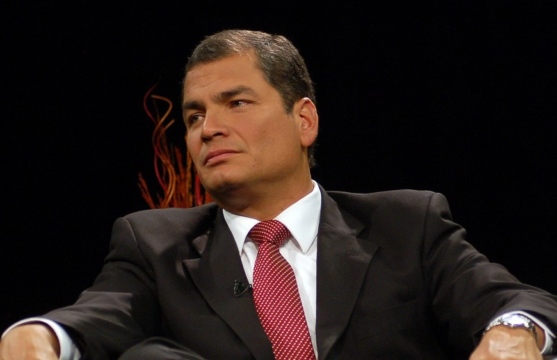
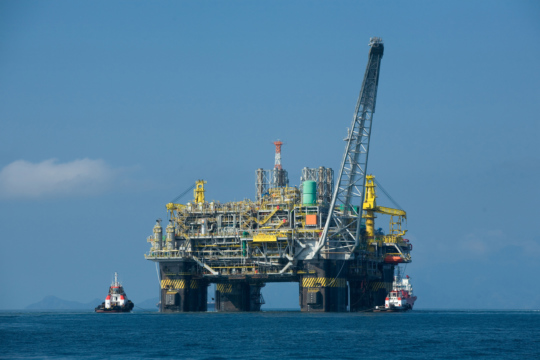
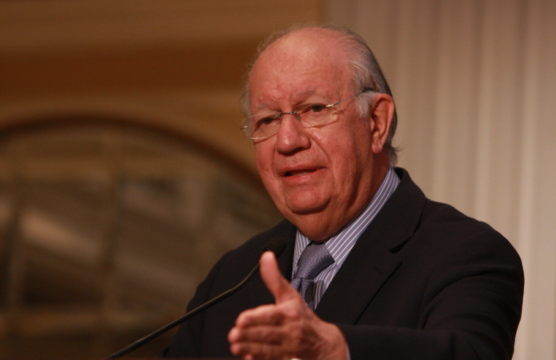
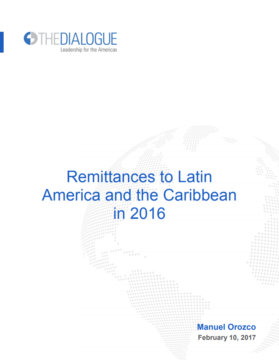
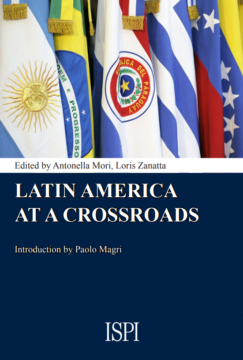
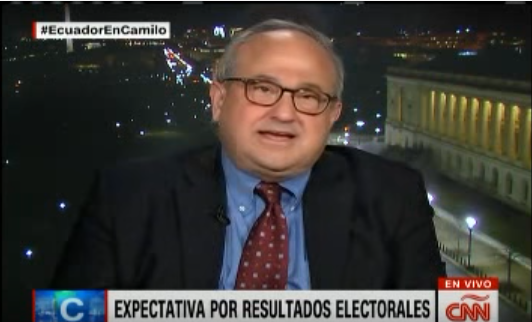 Video
Video